The third semi-final of THEMIS Competition was hosted by the Portuguese Judicial Training Centre (CEJ) in Lisbon, between 31 May and 3 June 2016. The subject of the semi-final was International Judicial Cooperation in Civil Matters – European Civil Procedure.
The maximum number of teams, eleven, according to THEMIS Rules, was enrolled in this semi-final. The teams came from 10 different European member states (Austria, Belgium, Czech Republic, Finland, France, Germany, Italy, Poland, Romania, Spain) and from Turkey.
|
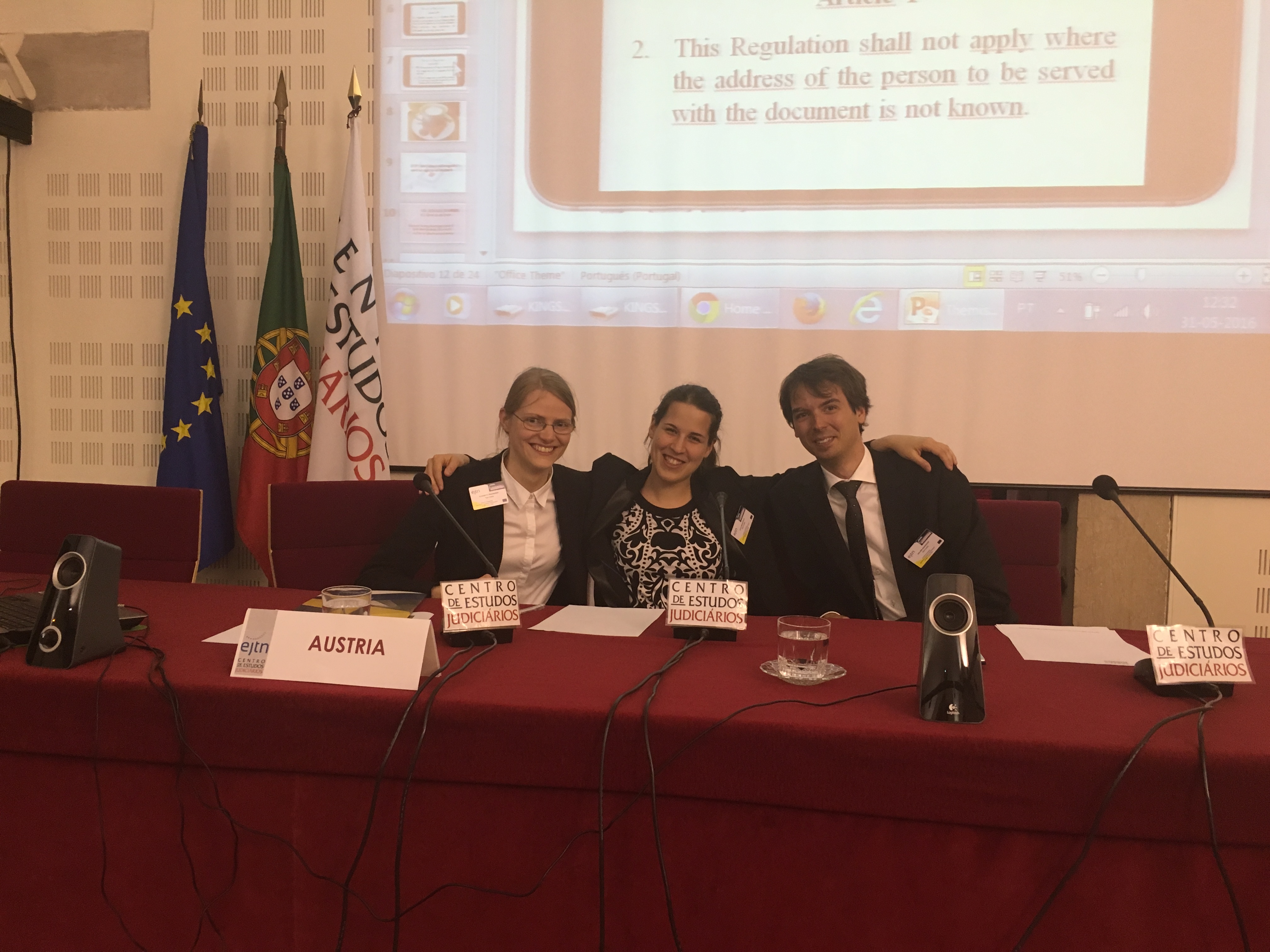 Team Austria Team Austria
|
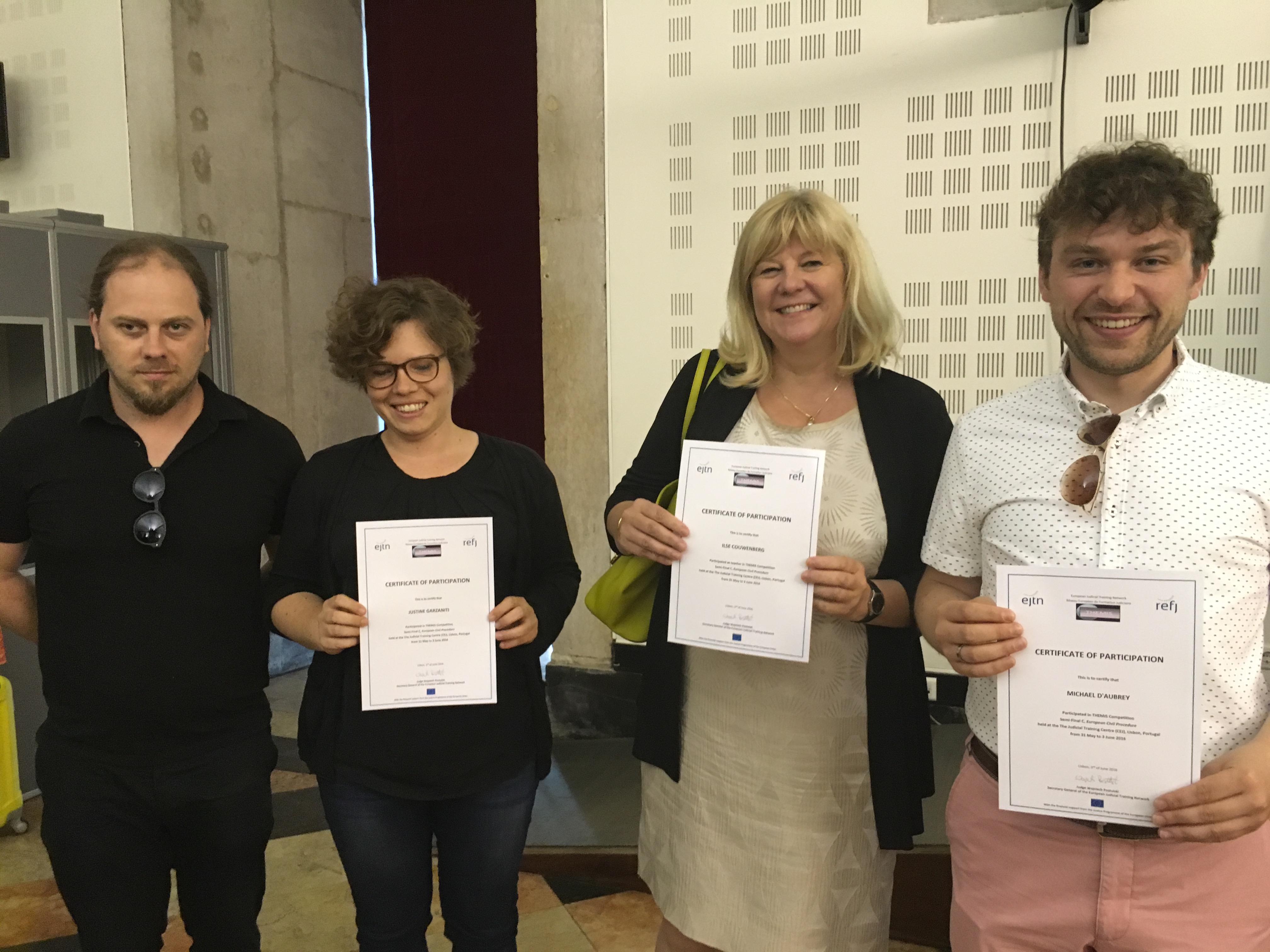 Team Belgium Team Belgium
|
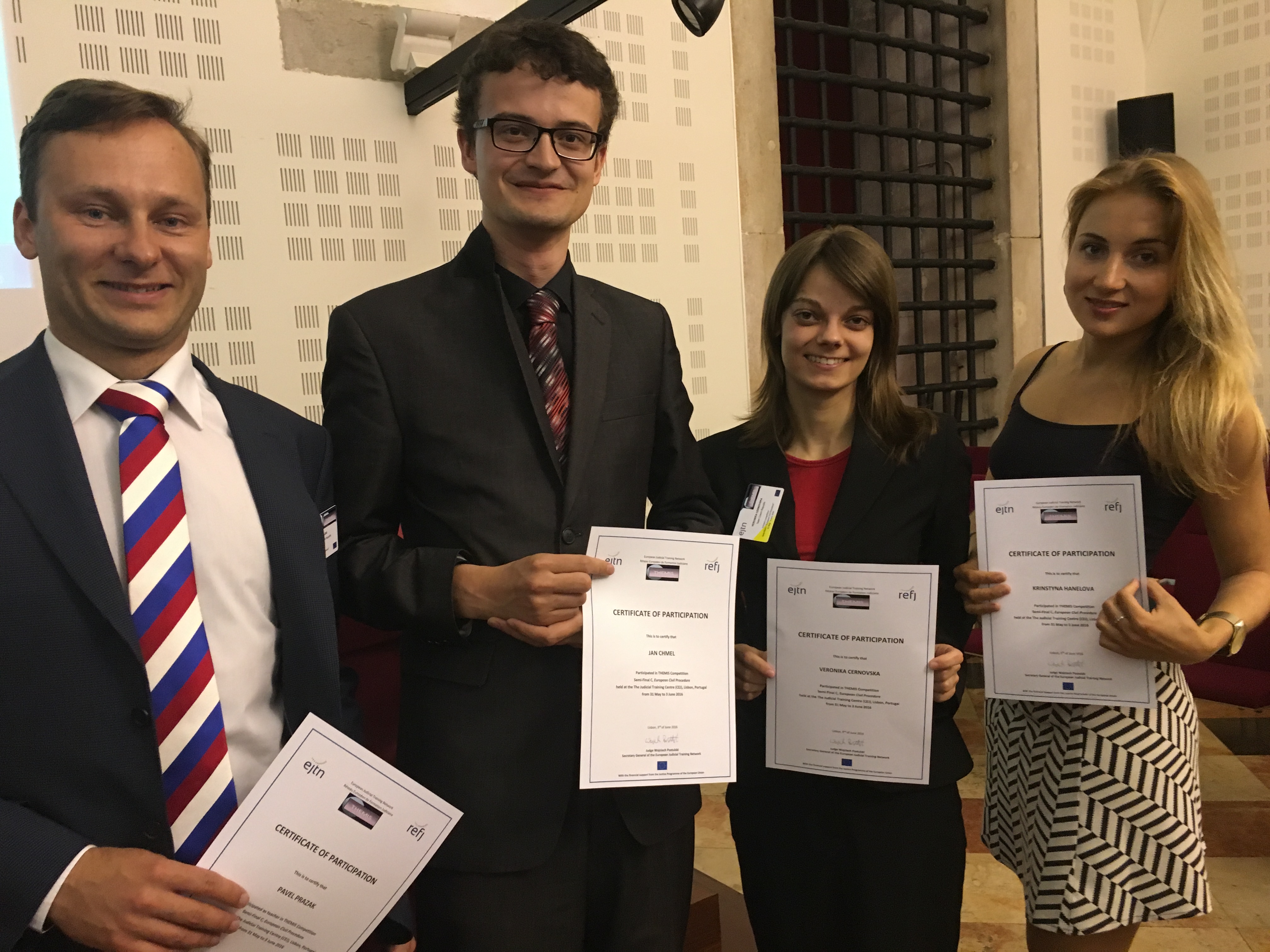 Team Czech Republic Team Czech Republic
|
|
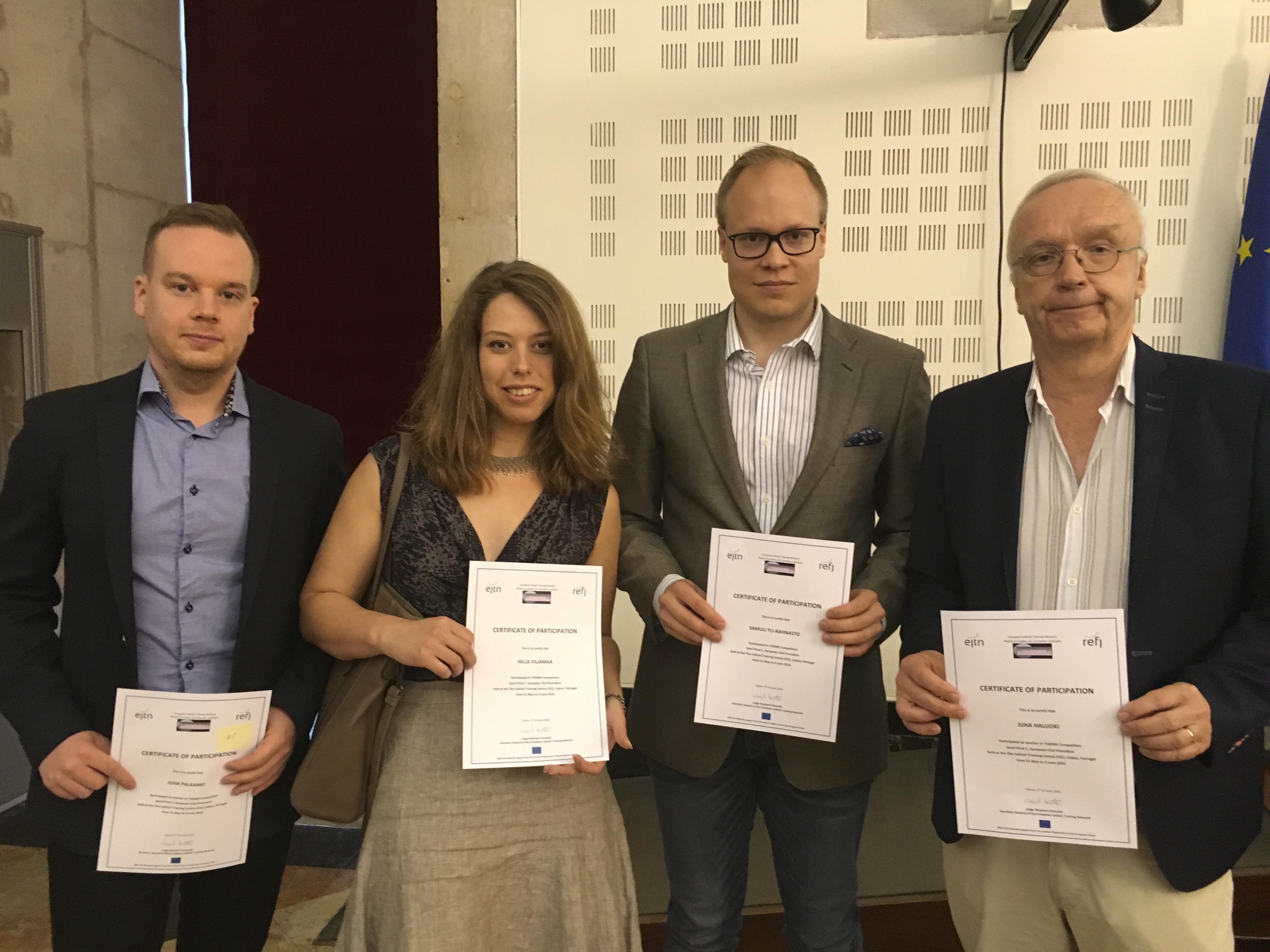 Team Finland Team Finland
|
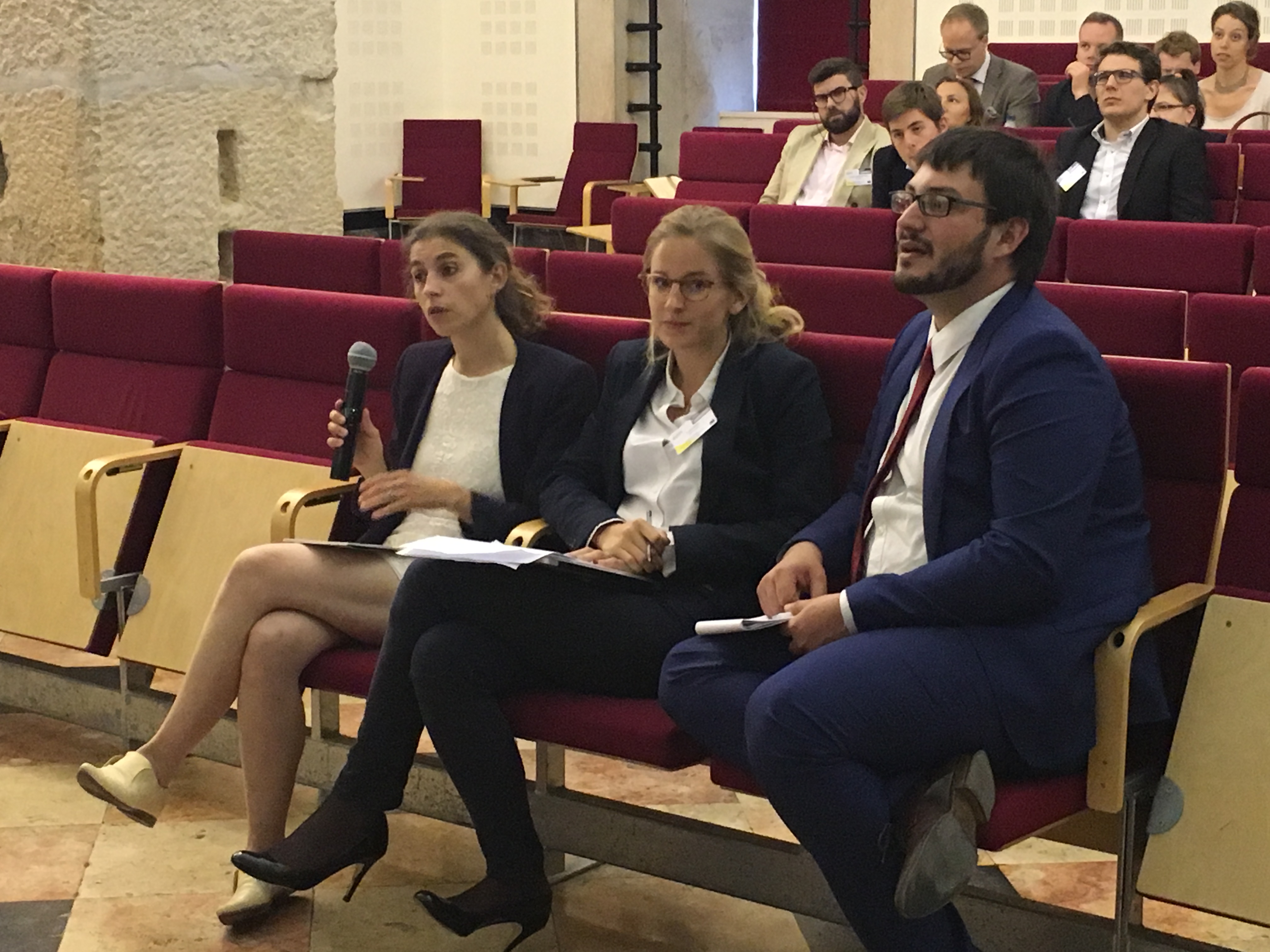 Team France Team France
|
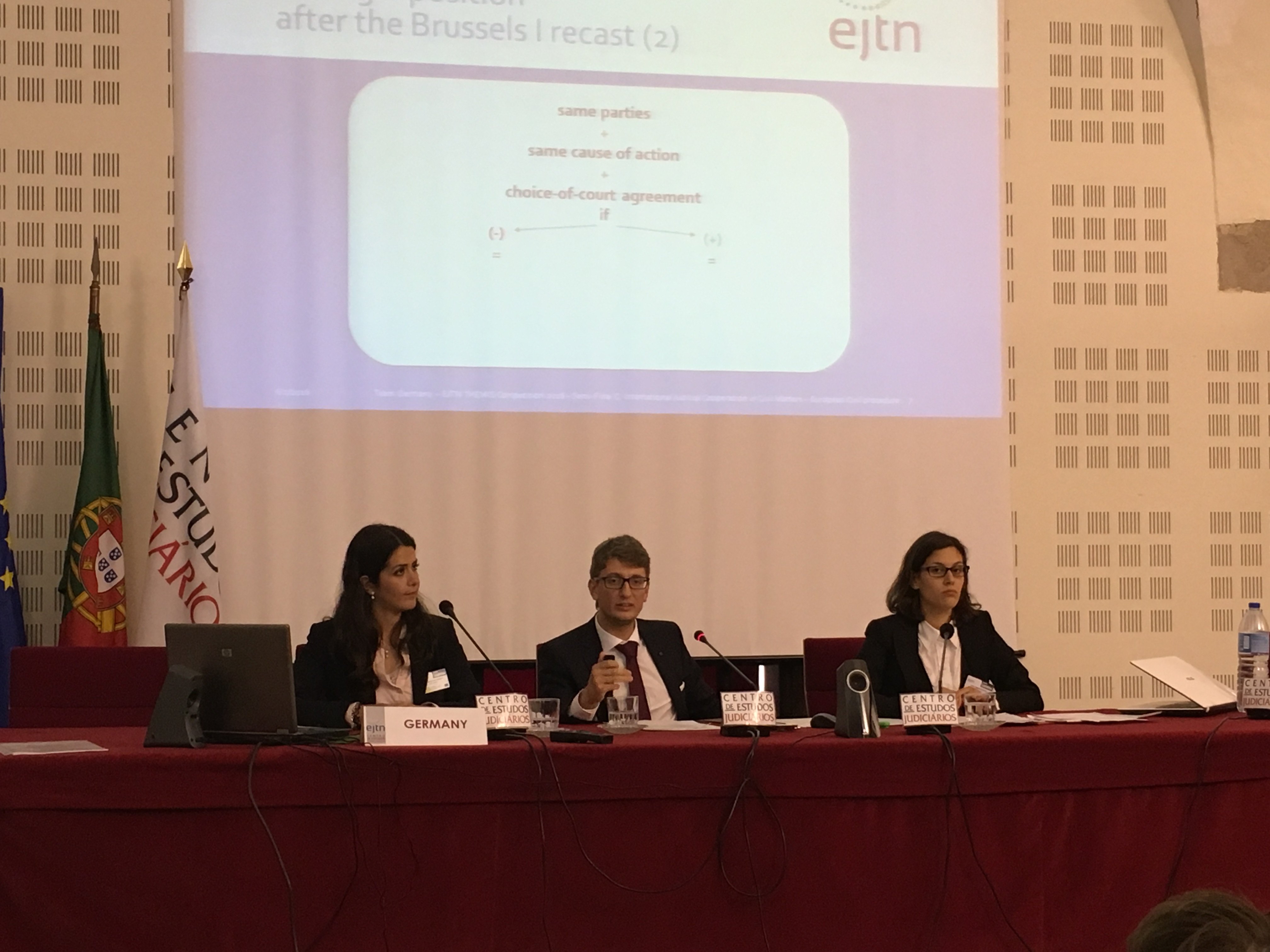 Team Germany Team Germany
|
|
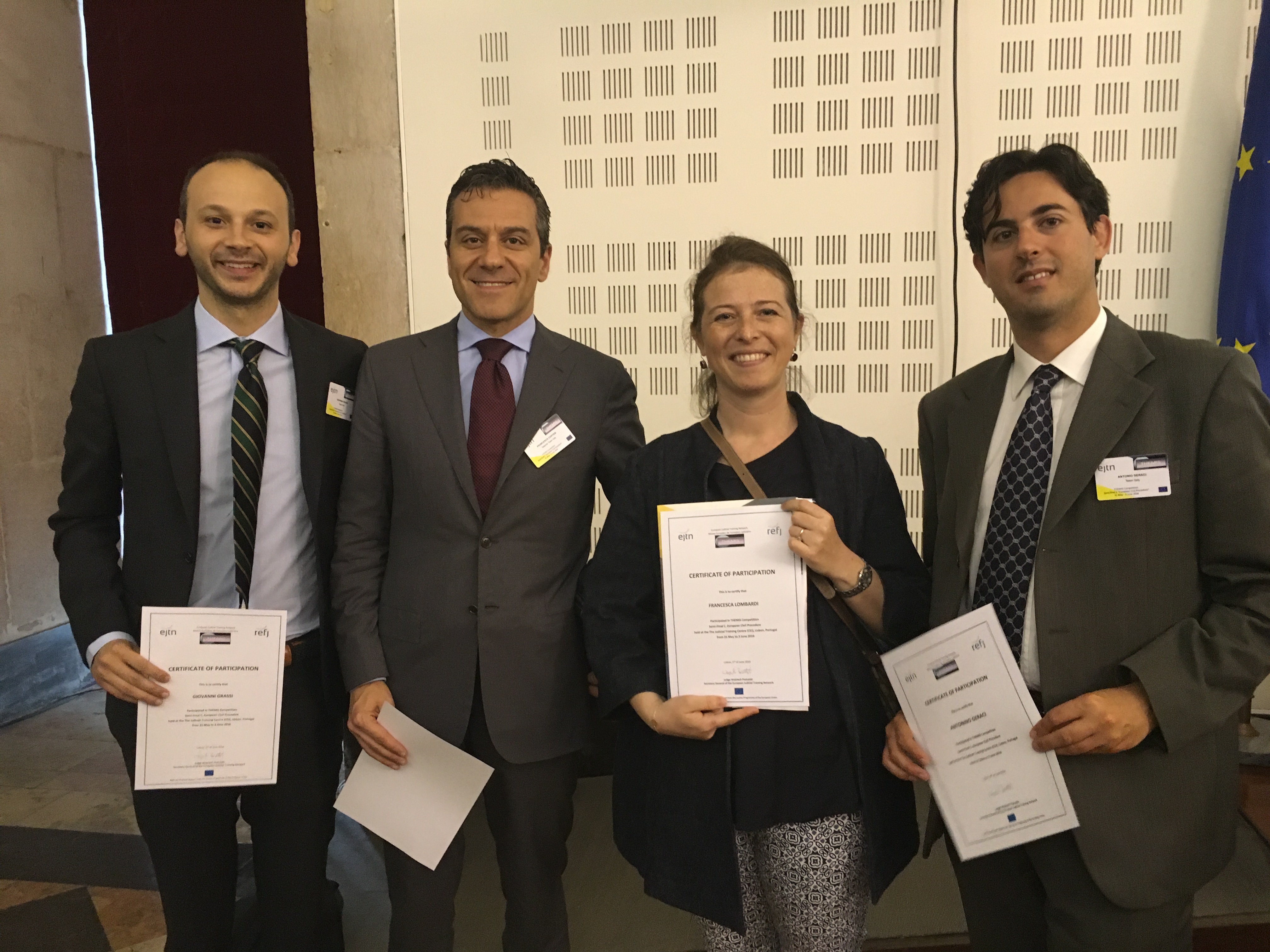
Team Italy
|
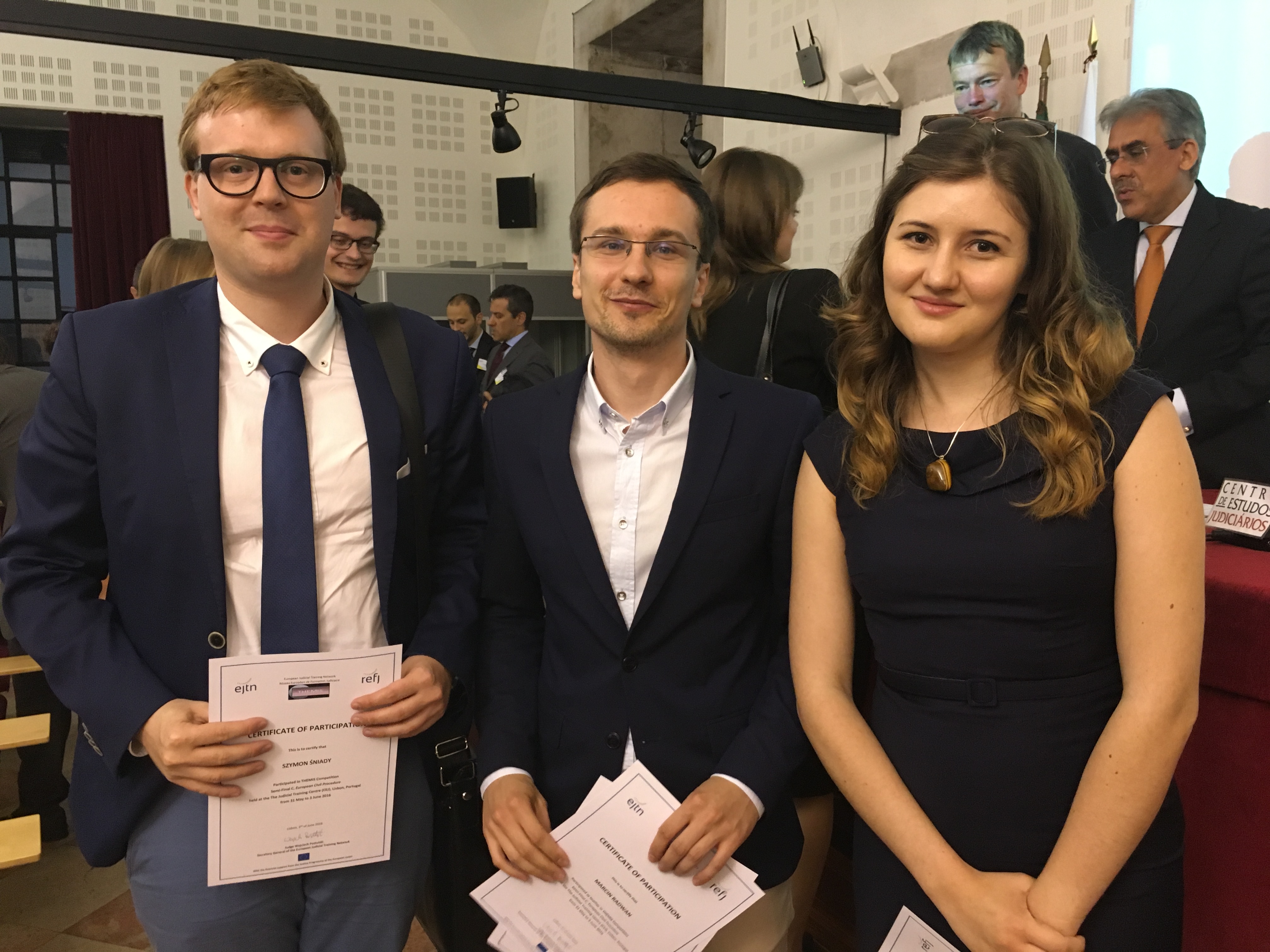
Team Poland
|
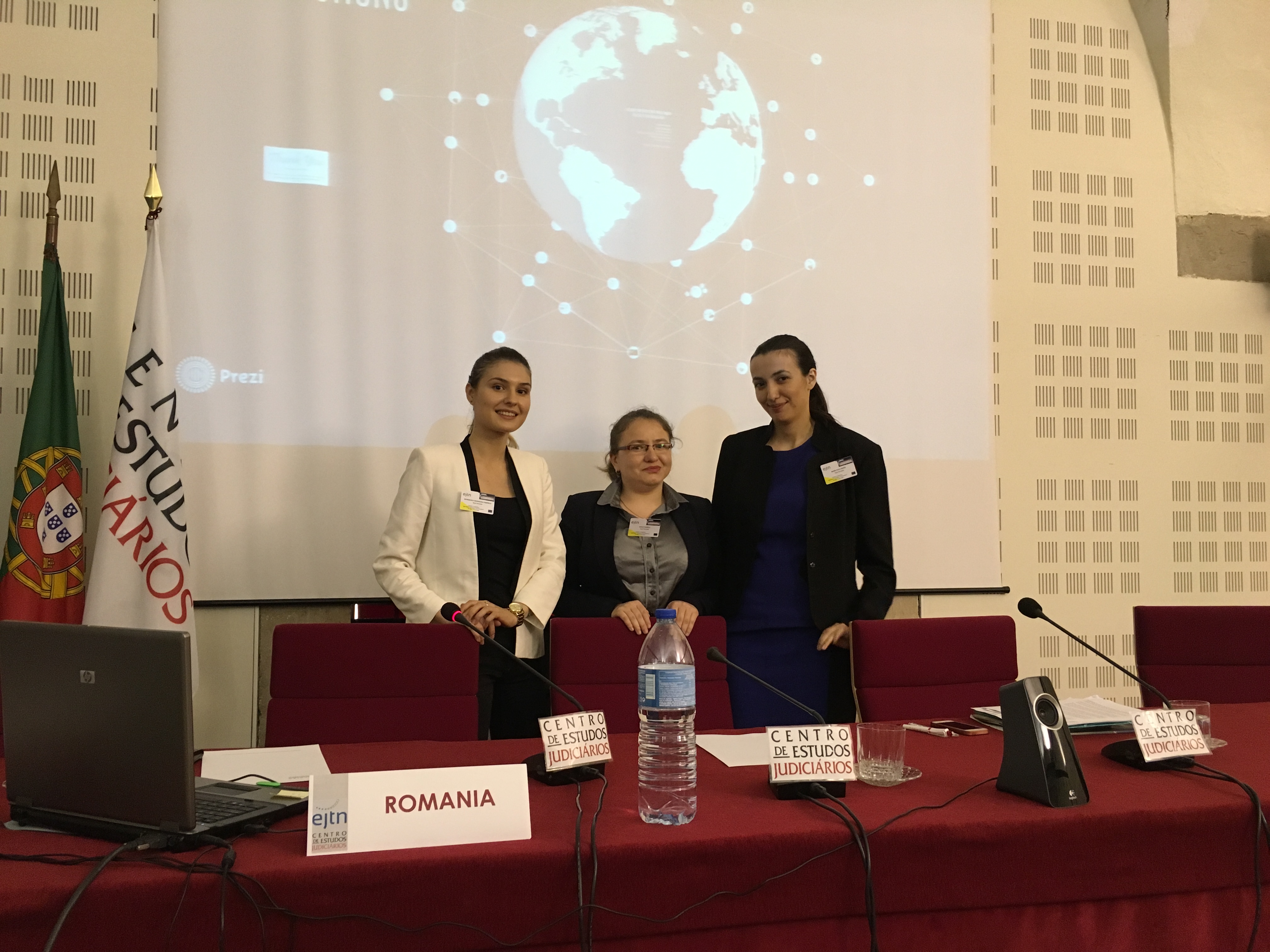 Team Romania Team Romania
|
|
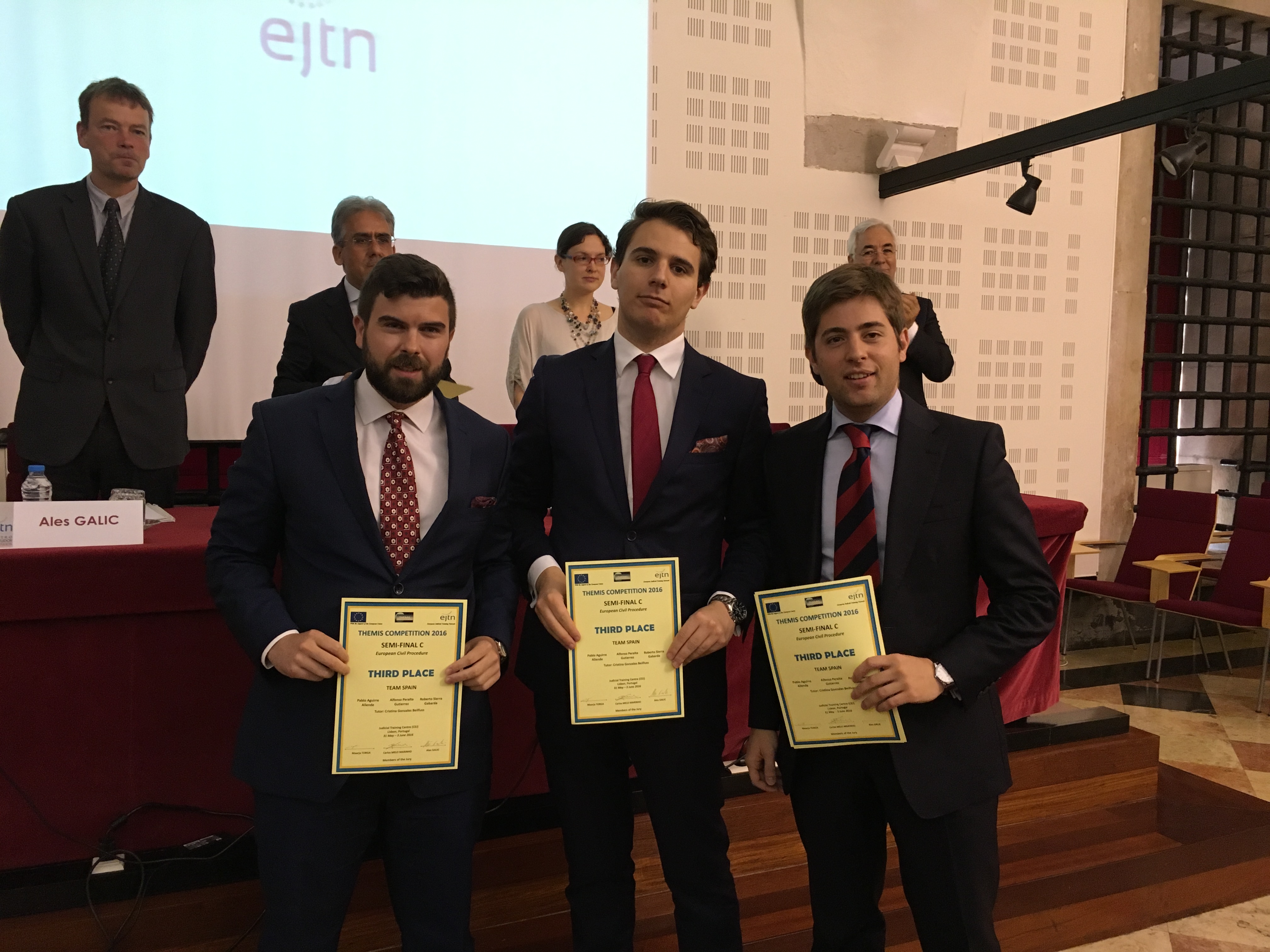 Team Spain Team Spain
|
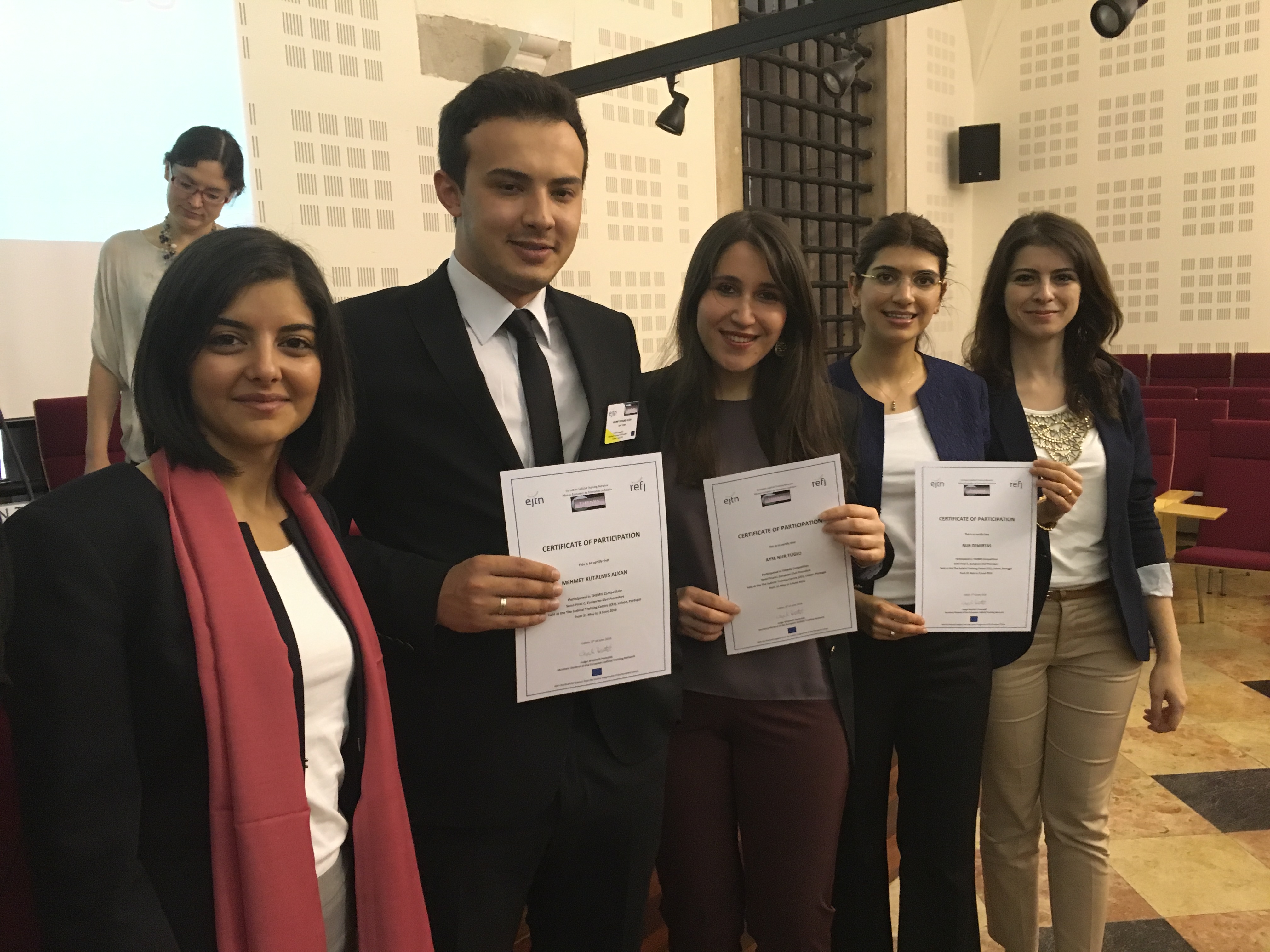 Team Turkey Team Turkey
|
|
The topics addressed by the teams were very different, including civil procedures against untraceable parties, consumer disputes in a cross border e-commerce context, principles of the law of evidence in relation to the EU cross-border civil proceedings, legal aid for legal persons, the public policy exception against the recognition and enforcement of European judgments, the race to the court in the light of the Brussels I Recast, balancing effective protection and right to defense in the EU judicial space perspective, service of judicial documents to party domiciled in the territory of another Member State, jurisdiction over cyber torts under Brussels I Bis Regulation, collective redress mechanisms in EU: jurisdiction issues in mass harm events, international pendency.
Three very experienced professionals in the field of European Civil Procedure have accepted EJTN’s invitation to be member of the jury and assess the competing teams: Ms. Maarja TORGA (EE), professor, Lecturer of Civil Law, University of Tartu, Adviser to the Civil Chamber of the Supreme Court of Estonia; Mr. Carlos GONCALVES DE MELO MARINHO (PT), senior Expert in International judicial cooperation and E-Justice, judge at the Lisbon Court of Appeal, Ex-National Contact Point of the European Judicial Network in Civil and Commercial Matters and Mr. Ales GALIC (SI), PhD, Professor, The Ljubljana Faculty of Law, specialised in Civil Procedural Law.
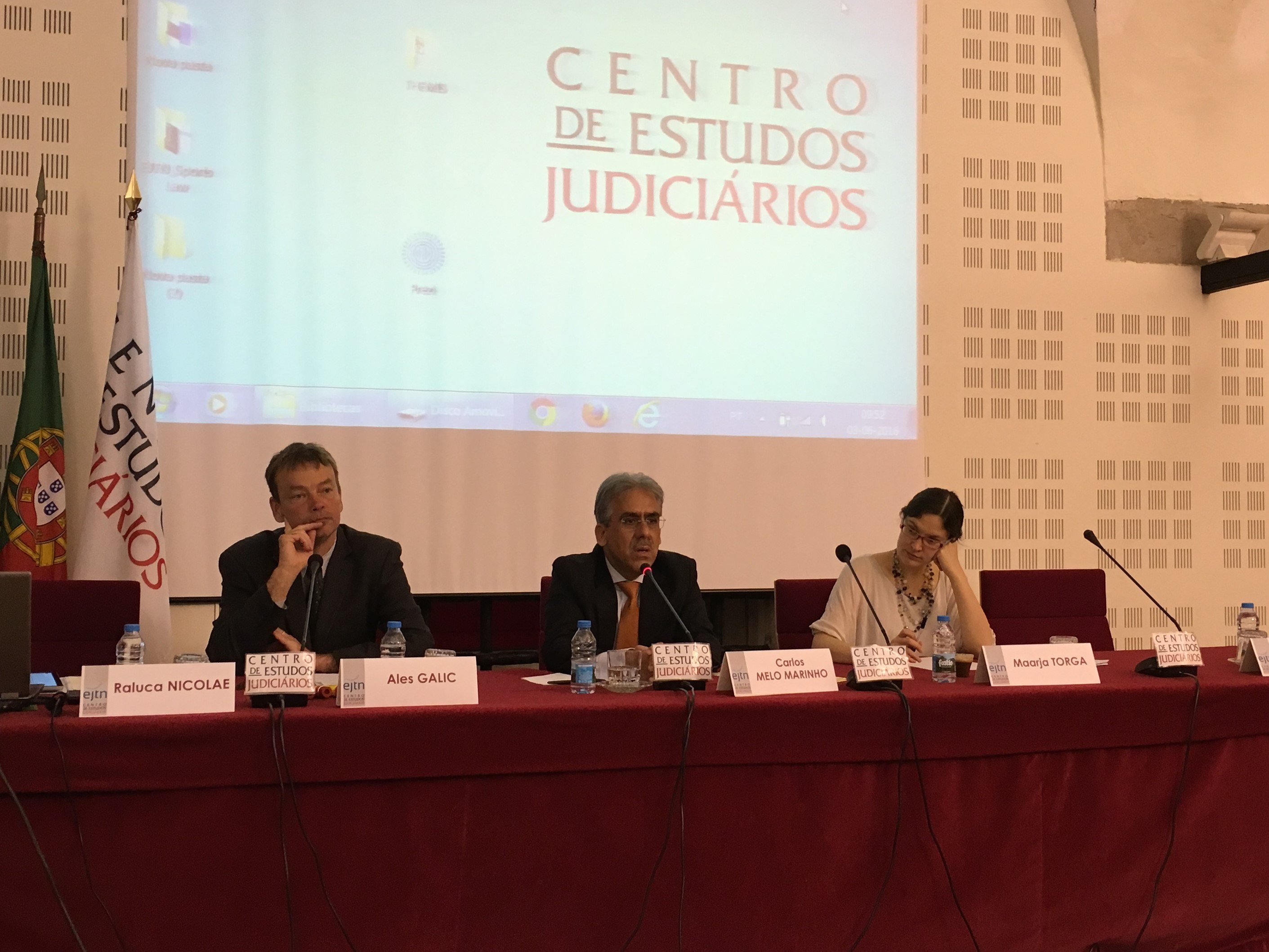
The jury members
The jury members had the difficult task to assess the teams in all the three stages of the competition: the written papers, the oral presentations and the discussions and to decide the two teams that will qualify to the final. They had to assess participants’ performance according to the following criteria: quality, originality, reference to the relevant case law of the European Court of Justice and European Court of Human Rights, in-depth analysis of the latest European debates on both ethics and EU Law and anticipation of future solutions.
Congratulations Team France!
First place was awarded to Team France (Mr. Pierre Beaudoin, Ms. Flore Mevel, Ms. Nicoline Tourtet and tutor: Ms. Laure VUITTON), which had an interesting written paper on the public policy exception against the recognition and enforcement of European judgments and a very interesting and interactive presentation, using role play to illustrate the issue.
Second place was awarded to Team Romania (Ms. Georgiana Gabriela Georgescu, Ms. Paula Maria Marin, Ms. Daniela Vasile and tutor: Ms. Gabriela Florescu), which addressed an interesting topic: jurisdiction over cyber torts under Brussels I Bis Regulation. Both teams are joining the other four winning teams from the first two semi-finals in the Grand Finals to be held in Bordeaux, France, in November.
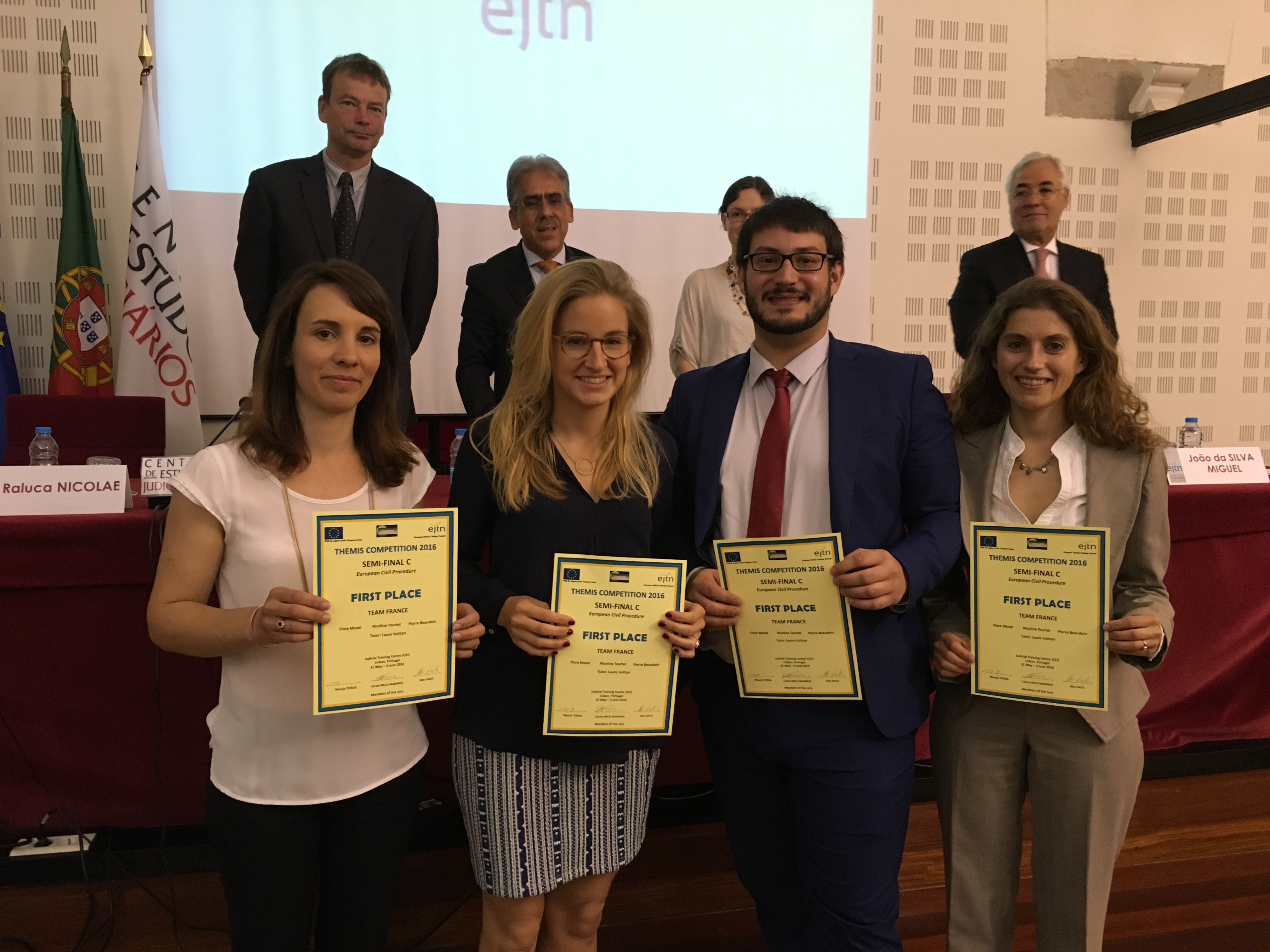
Team France - first place |
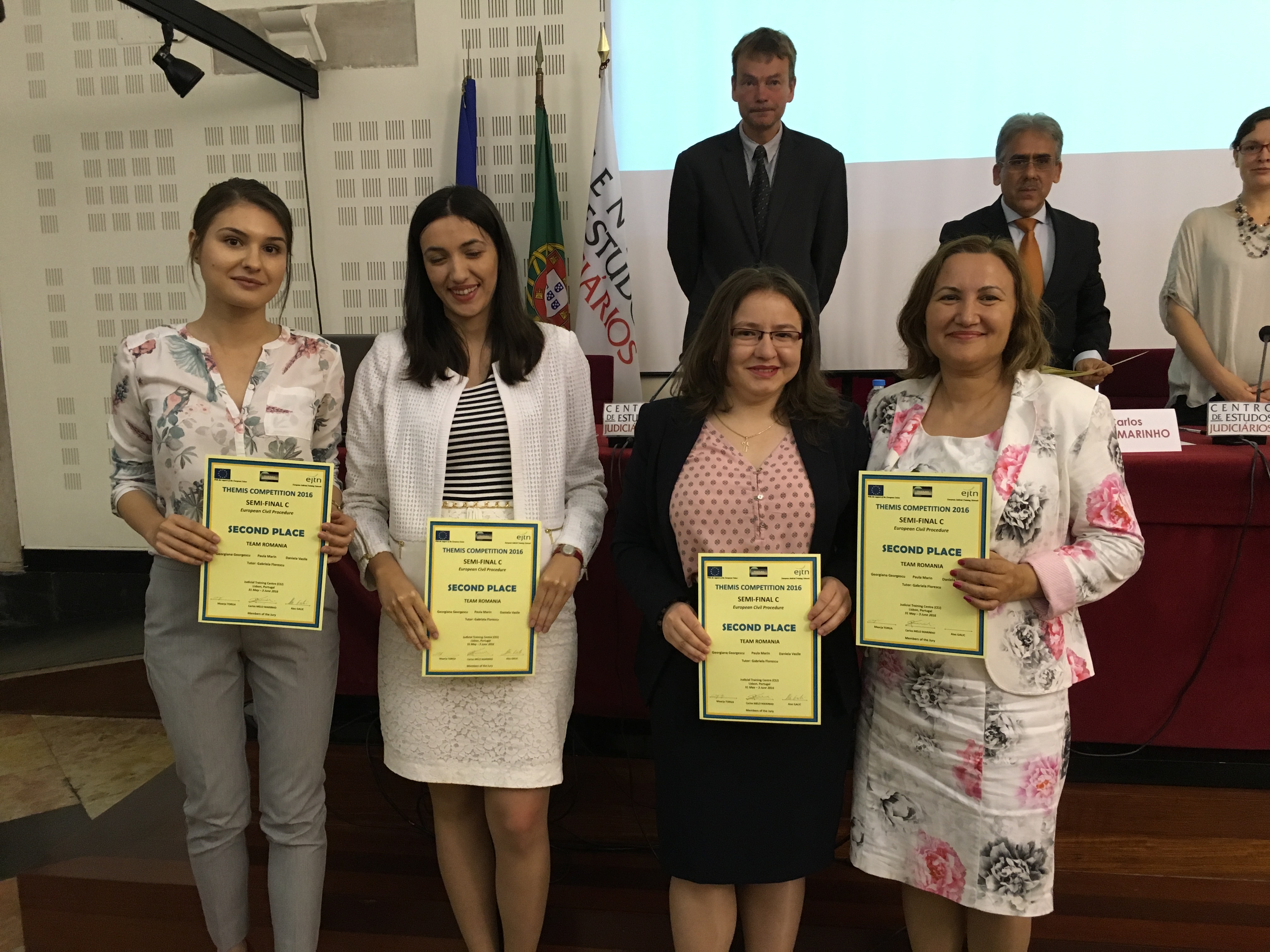
Team Romania - second place |
Before presenting the assessment of the teams the chair of the jury, Mr. Carlos Melo Merinho gave a speech on the evolution and current state of the European civil procedure.
The jurors presented the difficult task to evaluate all the teams because of the broad topics addressed in the written papers and because of the effort needed during the oral discussion. The jury had in mind that it is not only about asking difficult questions, but also to guide the discussions as the audience can follow and understand. The jury underlined the importance of THEMIS Competition in building bridges between European judiciary. They have made an extensive oral assessment of all the teams in the competition, accompanied by suggestions for improvement.
Throughout its long 11-year history, the THEMIS Competition has been helping future European magistrates to exchange views and experiences and improve their presentation and language skills. Most importantly, the Competition offers them the opportunity to enhance personal and career contacts and to familiarise themselves with different approaches to the same legal topic, creating a space for improving mutual trust in other European legal systems.
What the participants thought about this semi-final?
“International judicial cooperation in civil matters and European civil procedure sounds very technical, don’t you think? Well, I won’t lie to you. It is. However, perhaps thanks to the warm and sunny weather of the beautiful city Lisbon or maybe the hospitality of our hosts, the THEMIS Competition semi-final regarding the subject was anything but. From the first moment all the way to our last morning together, there was a real sense of cooperation and solidarity among the participants, everybody always cheering on the team in turn to give the presentation. The warm atmosphere quickly did away with any nerves, allowing us to get to know each other, learn about different legal cultures and perhaps gain new perspectives regarding our own. Thanks to awesome presentations and lively discussions, both during the official part of the competition and especially during breaks and social events, each participant is sure to head home with a vastly improved knowledge of European civil procedure. All that is left to be said is a big thank you to our hosts, the jury of the competition and especially our fellow participants and their mentors and, of course, to warmly recommend participating in THMEMIS Competition to all my European fellow future judges.” Hilla Viljamaa, Team Finland.
“We found the THEMIS to be a valuable opportunity to share the experiences of my colleagues from around Europe. We have learned a lot about the integration of different legal systems, and the chance for intercultural exchanges was also very welcome. Finally, many thanks to the beautiful city of Lisbon for hosting us.”, Team Italy.
EJTN wishes to thank the hosting institution for the support in organizing the event and for the constant assistance during the four days of the semi-final, and especially to Mr. João Manuel da Silva Miguel, Director of the Judicial Training Centre (CEJ) for his warm welcome words and to Mr. Diogo Ravara, Judge and full-time trainer at the CEJ, for the presentation of the Portuguese Judiacial System.
EJTN is the proud organiser of the annual THEMIS Competition, and is grateful for the financial support of the European Commission’s Justice Programme.
Written papers
Read more about THEMIS on the THEMIS project page.
About THEMIS
The main aim of the THEMIS project is to bring together future magistrates from different European countries at a time when they are undergoing entry level training to enable them to share common values and to exchange new experiences and discuss new perspectives in areas of common interest.
The project also aims to develop abilities related to the future profession of the participants, such as communication skills, debating abilities, critical and analytical thinking, logical reasoning and proper legal writing. Furthermore, THEMIS is intended to foster the development of professional contacts, experiences and relationships between both the entry-level trainees in magistracy and their teaching staff.